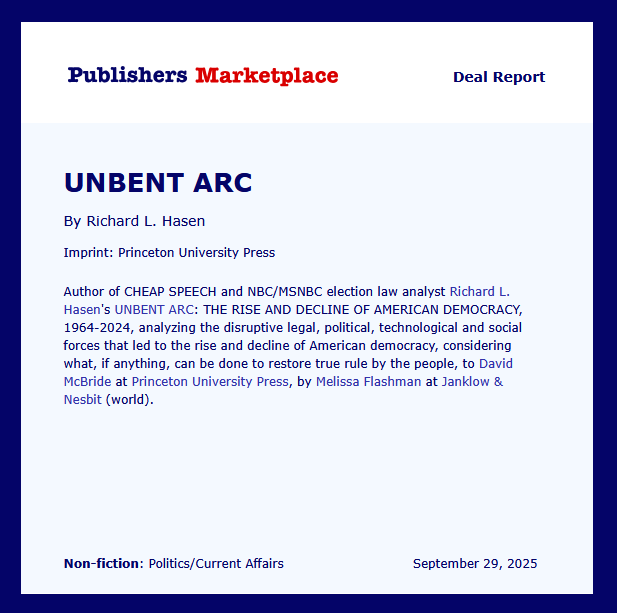I asked Dan Weiner of the Brennan Center to write a bit about the interesting position they’ve taken in the NRSC campaign finance case. Here is his guest post:
On Monday the Brennan Center for Justice at NYU Law filed an amicus brief in National Republican Senatorial Committee v. FEC, a First Amendment challenge before the Supreme Court over longstanding federal limits on coordinated spending between national party committees and candidates. The Brennan Center worked with Steptoe LLP on the brief. Many thanks to Rick for letting us summarize our views here.
The brief argues that the Court should uphold these limits, while leaving questions about whether they constitute good policy to Congress.
We have previously argued that Congress should consider eliminating these same limits as part of a reform package to strengthen political parties. Our view hasn’t changed. Parties, for all their faults, are essential to American democracy, and we should expect them to work closely with their own candidates. Parties can also be a significant vector for corruption, as the Court found when it upheld the coordinated spending limits several decades ago (then with the benefit of a substantial factual record, a practice the justices have since abandoned in campaign finance cases).
Given these competing factors, the best approach would be to put reasonable limits on contributions to both candidates and political parties and then let them coordinate as much as they want. But that isn’t the system we have. Instead, current law allows parties to raise more than 400 times the amount that individual candidates can raise per election cycle. Coordinated spending limits are an established way to prevent party donations from being used to circumvent the individual limits. That should be the end of the Court’s involvement.
What Congress should do is more complicated. We are skeptical that repealing the coordinated spending limits without other changes will have major benefits for American democracy, but reasonable people can disagree.
The real question is who should decide. At the heart of our brief is an accounting of how the Court’s interventions in campaign finance law over the last two decades have had unintended consequences that run directly counter to the justices’ own express assurances — including creating new avenues for corruption, undermining campaign transparency, letting more foreign money into elections, and fueling public cynicism with politics. Congress, in representing the American people (who overwhelmingly want more, not less, campaign finance safeguards), is the body best placed to anticipate and weigh such risks against the benefits of undoing longstanding rules. They, and not the Court, should decide the future of coordinated spending limits.
